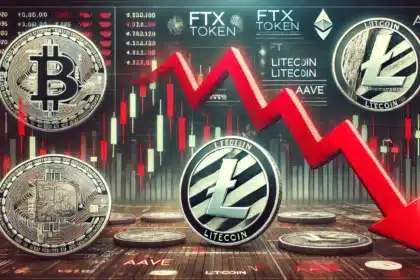The latest report from popular bug bounty platform Immunefi has revealed a staggering 112% increase in crypto hacks and frauds during the second quarter of 2024, leading to a loss of $572.7 million. This significant rise in crypto hacks criminal activity has sparked concern across the crypto community, emphasizing the urgent need for stronger security protocols.
Ethereum Is the Most Targeted Blockchain
According to the Immunefi Report, centralized finance (CeFi) platforms were the primary victims, accounting for 70% of the losses, while decentralized finance (DeFi) platforms made up the remaining 30%. The report also highlighted that the Ethereum blockchain continued to be the most targeted, experiencing 34 incidents that represented 46.6% of the total losses. BNB followed as the second most targeted chain with 18 incidents, accounting for 24.7%. Combined, these two blockchains were responsible for 71% of all losses in Q2 2024.

The two largest victims of these incidents were Japanese crypto exchange DMM Bitcoin, which lost $305 million, and Turkish exchange BtcTurk, which lost $55 million. DMM Bitcoin reported an “unauthorized leak of Bitcoin” involving 4,502.9 Bitcoin. The exchange has pledged to cover these losses with the help of its group of companies. Crypto security firm Elliptic classified this incident as the eighth-largest theft in crypto hack history.
Crypto Hack Attempts Predominate Over Fraud
The Immunefi Report indicates that crypto hack attempts were the predominant cause of losses, responsible for 98.5% of the total, while fraud accounted for only 1.5%. Mitchell Amador, the founder and CEO of Immunefi, remarked on the critical nature of these findings: “This quarter highlights how infrastructure compromises can be the most devastating hacks in crypto, as a single compromise can lead to millions in damages…Robust measures to safeguard the entirety of the ecosystem are crucial.”
Despite the overall increase in losses, the report also noted some successful recoveries. For instance, ALEX Lab lost $4.3 million but managed to recover $3.9 million, while YOLO Games recovered $1.35 million of the $1.5 million lost. Additionally, the Gala Games hacker, who stole 5,913 ETH worth $21 million, returned all of it.
Fraud Incidents Decline Year-On-Year
Interestingly, while crypto hack incidents have surged, the number of fraud incidents has decreased by 81% compared to Q2 2023. However, hacks have increased by 155% during the same period. Year-to-date (YTD) losses in the crypto ecosystem have reached $920.9 million across 135 incidents. The month of May was particularly devastating, contributing $358.5 million to the total losses, followed by June with $141.5 million and January with $133.4 million.

A notable scam that did not make it into the highlights of the Immunefi Report was the ZKasino scam. The team behind the crypto gambling platform diverted $33 million worth of refunds to the staking protocol Lido. Binance conducted an on-chain investigation that led to the identification and arrest of a 26-year-old suspect by the Netherlands’s Fiscal Information and Investigation Service (FIOD). The FIOD seized over 11.4 million euros worth of real estate, a luxury car, and cryptocurrencies from the suspect.
Major Takeaway on Crypto Hacks
The Immunefi Report for Q2 2024 paints a grim picture of the cryptocurrency landscape, with a dramatic increase in crypto hacks and frauds highlighting the vulnerabilities within the ecosystem. The substantial losses suffered by platforms like DMM Bitcoin and BtcTurk underscore the need for heightened security measures and vigilant monitoring of on-chain activities. While some recoveries offer a glimmer of hope, the overall trend underscores the importance of robust security infrastructure to protect against such devastating losses in the future.
In light of these findings, it is imperative for all participants in the cryptocurrency market, from individual holders to large exchanges, to prioritize security and due diligence. Only through concerted efforts can the community hope to mitigate the risks and safeguard the integrity of the digital asset space. Keep following TheBITJournal for latest updates on crypto hacks.




























